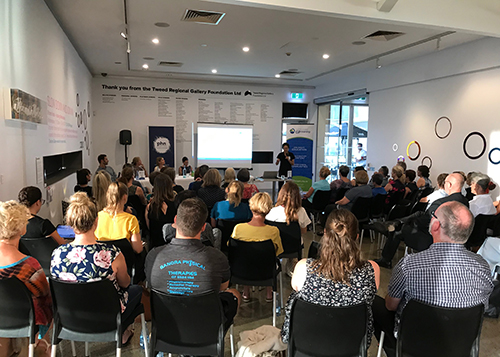In a surprise move the North Coast Primary Health Network (NCPHN) announced in late April it was taking back direct control of education for North Coast primary health practitioners.
The NCPHN Clinical Councils were not consulted about the decision to bring education back in house and a number of local doctors expressed their surprise when the change was announced. Many have felt that North Coast General Practice Training (NCGPT) had been doing an excellent job to date and were unclear as to why the decision had been made.
Previously, since July 2019, the NCPHN had contracted the delivery of the education program to NCGPT. The initial contract was for one year with the expectation of longer contracts in the future. It was acknowledged that it would take time to foster the relationships within the various groups in the primary health sector of general practitioners, GP based nurses and allied health practitioners, and between them and the secondary health sector groups of specialists, hospitals and State run community services.
NCGPT had previously had responsibility for training North Coast GPs but had lost the Federal government contract to Sydney based GP Synergy when the Federal government’s competitive tendering processes were prioritised in 2015. Despite being inactive for four years NCGPT was able to tap into its network of experienced medical educators who were well respected and had enjoyed an excellent reputation within the North Coast medical community.
Under the leadership of CEO, Sharyn White, and Director of Education, Hilton Koppe, NCGPT managed to quickly ramp up a program that addressed the NCPHN’s requirements. A series of seminars on dementia in November 2019 and workshops in February 2020 on the new hospital based specialty clinics were well attended with representation from all groups in both the primary and secondary health sectors.
NCGPT also showed great flexibility in the face of the COVID-19 crisis by putting together a number of webinars featuring local experts in infectious and respiratory disease, Aboriginal health care and general practice management on the topic of COVID-19 itself.
NCPHN covers the area from Tweed Heads to Port Macquarie and NCGPT managed to tailor their program to suit local needs. In the space of six months they had created six local clinical societies as well as four nurse networks as part of their localisation efforts. A further interest group for clinicians working in Aboriginal Health started in May.
It is understood that the programs were rated highly by attendees and that the program was coming in on time and on budget under the contract’s performance monitoring requirements. Over 1000 primary health care staff have attended events since the contract commenced and attendance rates were growing strongly. Evaluation of the events has been very positive with 90% of participants rating the events of a high standard.
When it was first announced that the contract would not be renewed there was speculation that another educational group had been chosen that could provide an online experience at a considerably cheaper price. However, the NCPHN has since confirmed that they will be undertaking the educational program themselves.
Primary Health Networks were established by the Liberal / National Coalition in July 2015 to create an efficient mechanism to deliver primary health services. The model sees the Department of Health contracting with local organisations who in turn subcontract with other entities to provide primary health care services adapted to local needs and capabilities. Healthy North Coast Limited (HNC) was the successful bidder for the Northern NSW Coast contract.
Under the guidelines the PHNs retain certain core functions, defined as:-
- maintenance of governance structures including Clinical Councils and Community Advisory Committees;
- stakeholder relationship management and engagement;
- supporting general practice
By bringing primary health education back under direct control HNC is aiming to fulfill the last of these three requirements. While the move is consistent with the guidelines it is a departure from the previous approach of tendering most services, an area where the NCPHN has been particularly active.
NCPHN runs three Clinical Councils across its footprint to provide local feedback on its programs. The Councils are advisory only, and while their input is valued, direction is ultimately determined by the NCPHN Board.
It is understood that the NCPHN has processes in place to continue the excellent work of NCGPT from 1 July 2020. There had been concern expressed that there would be a hiatus of 6 to 18 months in rolling out a new program as had been the experience of education delivery under NCPHN’s stewardship previously.
GPSpeak looks forward to the NCPHN’s program in this important area and is hopeful for a timely and even better education program under its auspices.
















